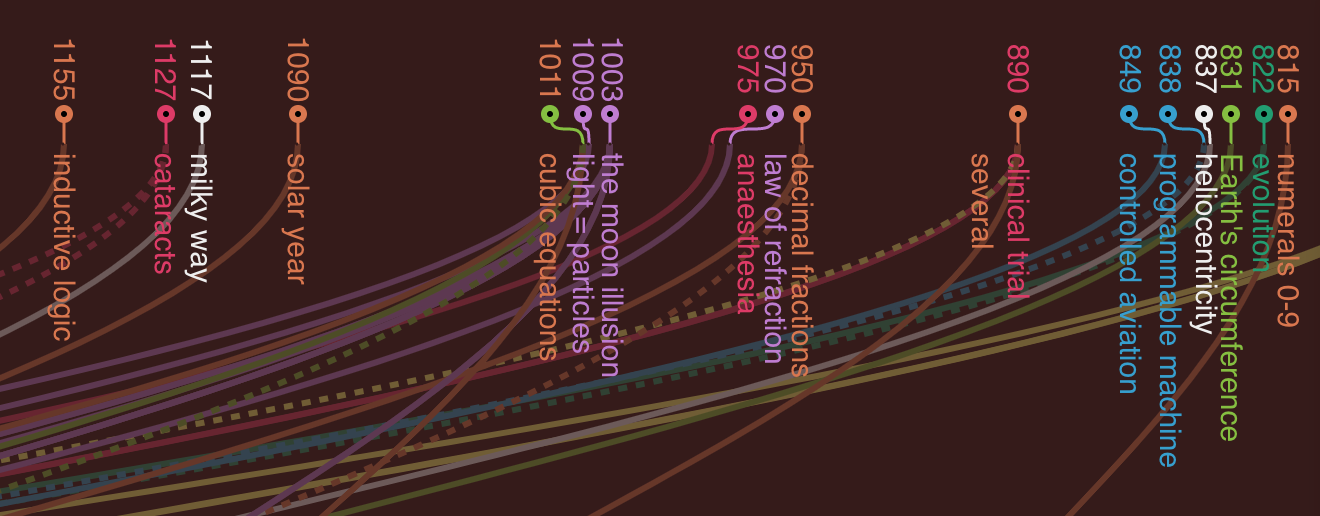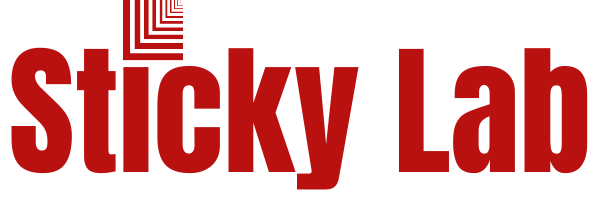
Words Matter
The future is either beaming or bearing down on us (depending on your perspective) much more quickly than anyone had expected.
The future is either beaming or bearing down on us (depending on your perspective) much more quickly than anyone had expected.
We often think of the future in terms of technology and machines. But the future is shaped by individual ideas and decisions, and by the systems we develop in science and civil society, across culture and commerce - separate from technology. Indeed, the way people communicate has more impact on the future than any technology. Fact or fiction. Good, evil or neutral. New ideas don’t get anywhere without a storyteller.
This week’s Sticky List highlights stories that explore these themes.
- Language is important. How we talk about the present informs our experience of the present. And how we discuss the future really will shape it.
- Innovation and invention comes from everywhere. Frequently, it isn’t recognized. Who gets to tell the stories, and how they are told matter.
- The myths and narratives of Silicon Valley are coming undone. This is important because there are few areas of our lives and our futures that aren’t impacted by it.
The Sticky List is bookended by two animated videos about finding time and space to breathe, read, and think.
We start with The Temple of Knowledge, about the hush of a public library at night,and conclude with Clearings, a visual essay about cutting through the noise of information that bombards us daily.
Read on. Stay well.
And please don’t be shy about hitting reply with any feedback or requests. As a new publication, the Sticky List relies on your input to keep improving and to understand what resonates and what doesn’t. Let me know which story in this week’s issue was most useful or interesting to you.
Erika
The Temple of Knowledge
Ronald Clark’s father was the custodian of a branch of the New York Public Library at a time when caretakers, along with their families, lived in the buildings. He remembers literally growing up in a library, creeping down to the stacks in the middle of the night when curiosity gripped him.
The Innovation Journey: A Conversation with Lucie Howell
Earlier this year I recorded a conversation with Lucie Howell, the Chief Learning Officer of The Henry Ford, a museum that explores the American experience of innovation, ingenuity and resourcefulness.
“One of things that the learning landscape teaches us – that it’s so much easier to make connections across stories when there is a common language. And this framework really gives us that common language to help others create connective tissues.”
“If we’re going to share these ideas and stories, we need to recognize that it is important to tell the truth. We need to recognize that nuance matters, and the kids are smart enough to understand nuance.”
Listen or read the transcript.
A note on “innovation” - it’s a slippery word, tossed around too often. But like many words that have been watered down through overuse, it’s important to remind ourselves what it means and why it’s part of our common language. Simply put, to innovate is to create or introduce something new, whether a product, a process, or an idea.
Covid-19 has blown apart the myth of Silicon Valley innovation
The pandemic shows that the US is no longer much good at coming up with technologies relevant to our most basic needs.Silicon Valley and big tech in general have been lame in responding to the crisis.
Sure, they have given us Zoom to keep the fortunate among us working and Netflix to keep us sane; Amazon is a savior these days for those avoiding stores; iPads are in hot demand and Instacart is helping to keep many self-isolating people fed. But the pandemic has also revealed the limitations and impotence of the world’s richest companies (and, we have been told, the most innovative place on earth) in the face of the public health crisis.Big tech doesn’t build anything.
It’s not likely to give us vaccines or diagnostic tests. We don’t even seem to know how to make a cotton swab. Those hoping the US could turn its dominant tech industry into a dynamo of innovation against the pandemic will be disappointed.
“Institutions will try to preserve the problem to which they are the solution.” - Clay Shirky
Kevin Kelly writes about The Shirky Principle, which “declares that complex solutions can become so dedicated to the problem they are the solution to, that often they inadvertently perpetuate the problem.”
Silicon Valley has worn the flashiest cloak of innovation since the 1960's.
But the culture that made it famous and effective has changed, writes Alexis Madrigal.
“Then the post-dot-com generation of companies became the most ubiquitous and valuable corporations in the world, and Silicon Valley’s rhetoric began to change. Over time, the leaders of Facebook and Google, specifically, began to argue a new line: The most innovative, competitive companies are not small and nimble, but big and rich with user data. The real game isn’t among American internet companies; it’s global, and pits American giants against Chinese corporations, governments, and values. In competition with such power, small will lose, or so the executives warn when facing down antitrust action.”
The One Question Every Founder Should Ask Before Rebuilding Their Business
“How can I rebuild my business as fast as possible?” It’s the one question all founders and CEOs are considering right now.
And it’s the wrong one. Instead, we should be asking, “If I were starting my business today from scratch, what business would I build?
While this piece is geared toward business leaders, the question is relevant to anyone who is re-thinking their career, their personal life, and their place within community. Combine what you’ve learned over the years with the opportunity of the current world-changing event and ask yourself:
“If I were starting [fill in the blank] today from scratch, what would I do? And how can I make that happen?”
Words matter. Style matters. Honesty matters.

How Dr. Amy Acton Helped Save Ohioans from Coronavirus
A nuts and bolts analysis of the extremely effective communications style of Dr. Amy Acton, who has earned praise for her daily briefings on the pandemic.
The Power of Story In Crisis: Andrew Cuomo Shows How It's Done
Our need for compassionate, thoughtful, and decisive leadership is best served by a blend of hard truths and something far more difficult to conjure: the power of our collective human capacity for decency, love, and levity.
“Words matter, because people are scared, and people panic. Shelter in place is used currently for an active shooter or a school shooting. We are fighting a war on two fronts. We are fighting the virus, and we are fighting fear. When we act on fears, then we’re in a dangerous place.”
Finding the Right Words in a Crisis
Words are the most important tool in a world where “command and control” leadership has given way to power by persuasion.This is especially true during a crisis, when attention spans are flagging and noise levels are high. People are being bombarded by information, some of which is misleading or false. The clearer and more concise you are, the better your chances of getting your message across and persuading people to act on it.
Tech Experts Think the Internet Is Ruining Democracy
Digital media overwhelm people with a sense of the complexity of the world and undermine trust in institutions, governments and leaders. Many people seize simplistic unworkable solutions offered by actual and wannabe tyrants,” wrote Jonathan Grudin, a principal researcher at Microsoft.
“Add to this the ease of spreading false information and the difficulty of formulating effective regulations for a global system and it is difficult even to envision a positive outcome, much less take steps to realize it.

Silicon Valley Broke All Its Promises
How should we tell the story of the digital century, now two decades old? We could focus, as journalists tend to do, on the depredations of the connected life. As Facebook, Twitter, and YouTube have devoured the online world, they have undermined traditional media, empowered propagandists, and widened America’s political divides. The smartphone, for all its wonder and utility, has also proved to be a narcotizing agent.
What Islamic Golden Age Thinkers Discovered Long before the West
Sure you’ve heard of Copernicus, Fibonacci and Fermat. But what about Ibn al-haytham, al-Bīrūni, al-razi - the often uncredited Islamic Golden Age scholars who inspired and informed their discoveries?
Information is Beautiful's interactive infographic charts the discoveries, inventions and scientific breakthroughs of the Islamic Golden Age and beyond versus their comparative date of ‘discovery’ by the West.

Highlights:
Astronomy: Persian polymath Nasīr al-Dīn Tūsī was first to put the Sun at the centre of the solar system, 940+ years before Copernicus. He also surmised that the Milky Way was composed of millions of stars (later confirmed by Galileo in 1610)»
Clinical trials: Persian polymath al-Razi performed the first controlled medical trial in 890AD, some time before John Haygarth in 1799.»
Surgery: Spanish physician Ibn Zuhr developed techniques for removing cataracts and kidney stones, at least 700 years before the West. Thankfully, around 975AD, a fellow scientist al-Zahrāwi had pioneered the use of inhaled anaesthesia to put his patients into a painless sleep during surgery.
Clearings
We’re so caught up in the management of overwhelming volumes of information that we no longer take the time to truly get to know any of it.We’re inundated with a barrage of information that crowds out original thought. What matters - and even what’s true - is obscured by the noise.
Read David Rossiter's essay and watch the video.


